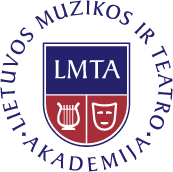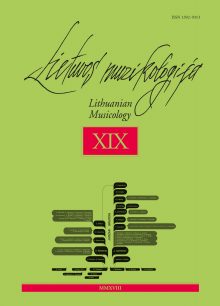Naujausias „Lietuvos muzikologijos“ tomas gvildena kompozitorių mokyklos klausimą. Žurnalo puslapiuose diskutuojama, kas slypi po muzikų leksikone paplitusių žodžių dvinariu ir kokias reikšmes jis transliuoja tyrėjams, muzikams bei visam pasauliui. Akivaizdu, kad mokslinio termino statuso su visu reikšmių bagažu sąvoka „kompozitorių mokykla“ dar neišsikovojo solidžiuose žodynuose ar enciklopedijose. Nemažai žurnalo autorių liudija, kad ši daugelio vartojama sąvoka kupina prasmingo turinio, tačiau nevienodai suvokia jai priskiriamų reiškinių spektrą. Žurnale publikuojami tyrimai kelia ne vien sąvokos turinio įteisinimo ir vartosenos klausimus. Daug dėmesio skiriama praktikai – siekiama atskleisti, kaip fenomenas funkcionuoja konkrečiose muzikinėse kultūrose. Devynioliktame žurnalo tome susibūrę Latvijos, Rusijos, Armėnijos, Ukrainos, Serbijos, Makedonijos, Vokietijos, Rusijos, Lenkijos ir Lietuvos mokslininkai, reflektuodami bendrą diskurso situaciją, brėžia aktualių kompozitorių mokyklos reikšmių ratą.
* * * * *
The latest volume of Lithuanian Musicology is concerned with the question of composition school. It offers a forum for discussion of different aspects of the notion composition school, so widely spread with music professionals, as well as of the actual meanings that researchers, musicians and the general public attach to the notion. It is obvious that composition school has not yet been established as a scientific term entailing the explanation of its etymology and meanings in major dictionaries and encyclopedias. Many of the authors herein recognise that the notion is full of meaningful content, but admittedly, have different ideas about all the phenomena attributed to composition school. The validation of the notion content and its use are not the only issues addressed in the papers published in this volume. A particular attention is paid on practical matters to reveal how the phenomenon functions in specific musical cultures. The 19th volume of the journal brings together Latvian, Russian, Armenian, Ukrainian, Serbian, Macedonian, German, Polish and Lithuanian scholars to reflect on the overall situation of the discourse and outline the whole spectrum of relevant meanings of the composition school concept.
Articles
- Pratarmė / Foreword
-
Melita MILIN.
Stronger Together: Composition Schools as a Means of Affirming Aesthetic Goals -
Viktorija KOLAROVSKA-GMIRJA.
The Macedonian National School of Composition: The Specifics of Foundation and Development -
Patrick BECKER.
Darmstadt als Bauhütte: Historische und aktuelle Perspektiven auf die Internationalen Ferienkurse für Neue Musik -
Joanna SCHILLER-RYDZEWSKA.
The Roots of Composers’ Milieu in Postwar Gdańsk -
Levon HAKOBIAN.
Cosmopolitan Nationalism under Moderate Totalitarianism: The Situation of Armenian Art Music in the 1970s and Early 1980s -
Iryna TUKOVA.
The Development of Western European Trends in the Kyiv Composition School (2010–2017) -
Margarita KATUNYAN.
Nikolay Sidelnikov’s School of Composition -
Jānis KUDIŅŠ.
Composition School, Tradition or a Remarkable Personality? Some Remarks on Jāzeps Vītols’ Creative and Pedagogical Work in the frame of 20th Century European Music -
Jūlija JONĀNE.
The Foundation of Sacred Music within the Framework of Jāzeps Vītols’ Musical Creativity -
Baiba JAUNSLAVIETE.
The Composition School of Maija Einfelde: Some Pedagogical and Stylistic Aspects -
Danutė PETRAUSKAITĖ.
Lietuviškos kompozicinės mokyklos paieškos išeivijoje (JAV) -
Audronė ŽIŪRAITYTĖ.
The Ballet Ant marių kranto in a Cultural-Ideological Context and in the Creative Work of Julius Juzeliūnas -
Algirdas Jonas AMBRAZAS.
Julius Juzeliūnas ir Eduardas Balsys: to paties kelio skirtingos atšakos -
Gražina DAUNORAVIČIENĖ.
Classes and Schools of Lithuanian Composers: A Genealogical Discourse -
Aušra ŽIČKIENĖ.
Dar kartą apie Bridžiaus Gedkanto įrašą XVII a. atminimų albume: kontekstų studija -
Giedrius ALKAUSKAS.
“Music–Mathematics” Interconnections: An Approach through Science (Works by Mathematicians), and an Approach through the Arts (Musica mathematica by Rima Povilionienė) - Apie autorius / About the authors

